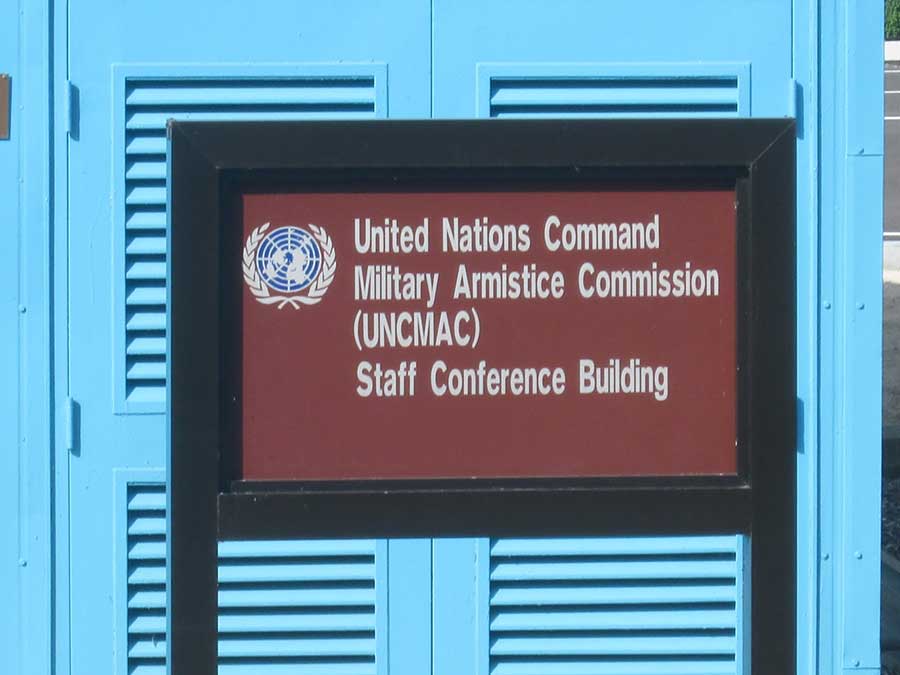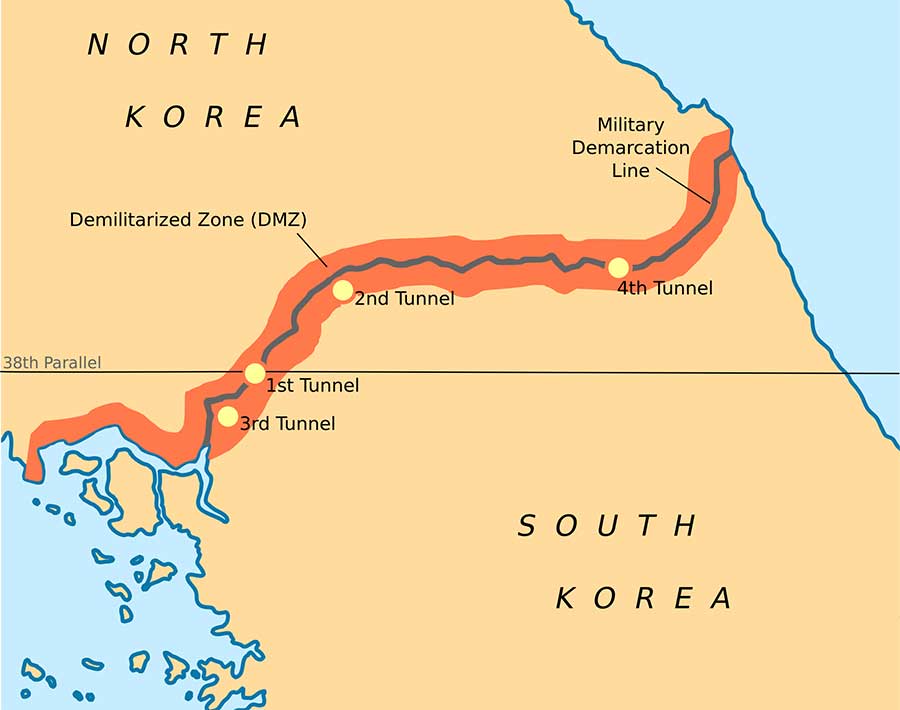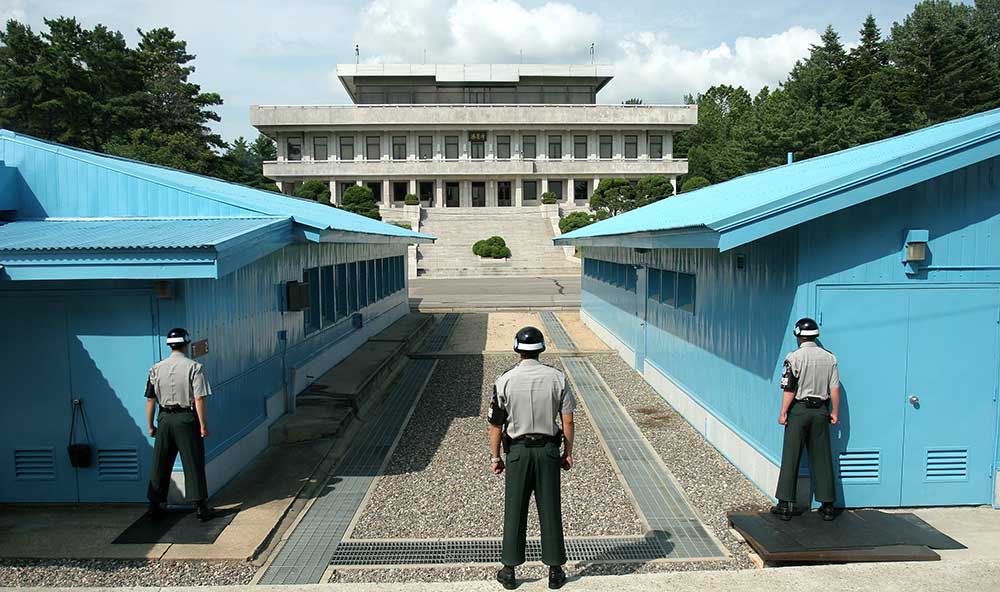Seoul, South Korea – Negotiations between longtime rivals, North and South Korea, have extended for a third day as they try to lower tensions between both countries threatening with military action.
Meetings began on Saturday evening. The second session took place on Sunday evening and the third on Monday morning. The length of the talks have been very extensive, almost 10 hours for the first session and more than 16 for the second.

However, there has not been any indications of immediate progression, which is common between the two countries. The Koreas often have demonstrated difficulties in agreeing to talk, and once they do, long sessions are often the rule. After decades of hostility, reaching agreements is challenging. Also, threats from Pyongyang, North Korea’s capital, are not that surprising either. Last year both Koreas embarked on epic rounds of talks due to a shooting episode on the border.
Even as talks continue to take place, South Korea reported that 50 to 70 North Korean submarines appeared to have left their bases. Also, the South observed that troop numbers doubled on the northern side of the demilitarized zone (DMZ) that separates the neighbors. For this, the South commanded six fighter jets to return home from drills in Alaska.

But, the fact that both nations continue to talk shows positive signs for the whole scenario.
Former US diplomat with long experience dealing with both Koreas, Evans Revere, said, “The fact that they’re still at the table is a somewhat hopeful sign. The context in which it has all unfolded is obviously a troubling one, particularly reports of North Korean military movements. They’re usually indicators that they’re getting ready for a fight.”
During negotiations, South Korea has been represented by its unification minister, Hong Yong-pyo, alongside with national security adviser Kim Kwan-jin. On the other hand, North Korea sent its director of the United Front Department, Kim Yang Gon and director of the general political bureau of the North Korean army, Hwang Pyong So.

Current tensions began earlier this month due to a land mine attack that severely injured two South Koreans soldiers in the DMZ. In response, the South began a “psychological warfare” by installing speakers in the DMZ. The speakers played anti-Pyongyang propaganda broadcasts for the first time in 11 years, infuriating the North, which is extremely sensitive to any criticism.
Later, North Korea shot several rockets at the speakers on Thursday, causing the South to retaliate with howitzer rounds. Then Pyongyang gave Seoul a deadline of 5 pm local time Saturday to dismantle the speakers or face military action. However, the South made it clear that it would not. Indeed, the Defense Ministry official explained that Seoul continued the anti-Pyongyang broadcasts even after the start of negotiations on Saturday and also after the second session on Sunday. He said the South would decide whether to stop the broadcasts, after the talks.
The world will remain vigilant to whatever outcome may result after the talks. “South Korea wants an apology for the mine attack, and the North Koreans in return want the broadcasts to be stopped,” said James Kim of the Asan Institute for Policy Studies in Seoul. “If you think about it from the North Korean point of view, they don’t have much leverage in terms of what they could to do pressure South Korea,” Kim added. “So it’s understandable why they’re building up their military presence and playing a cat-and-mouse game with their submarines. The only weapon they have is the element of surprise, and they’re using it right now. Maybe because they truly feel threatened or maybe because they want to get some leverage,” Kim concluded.
Source: New York Times
